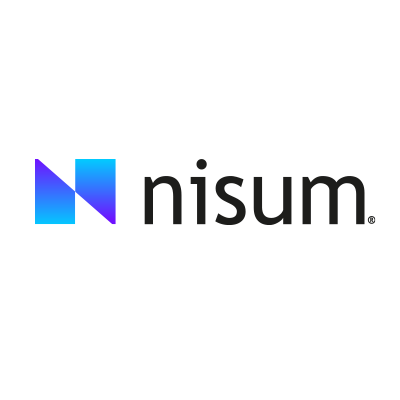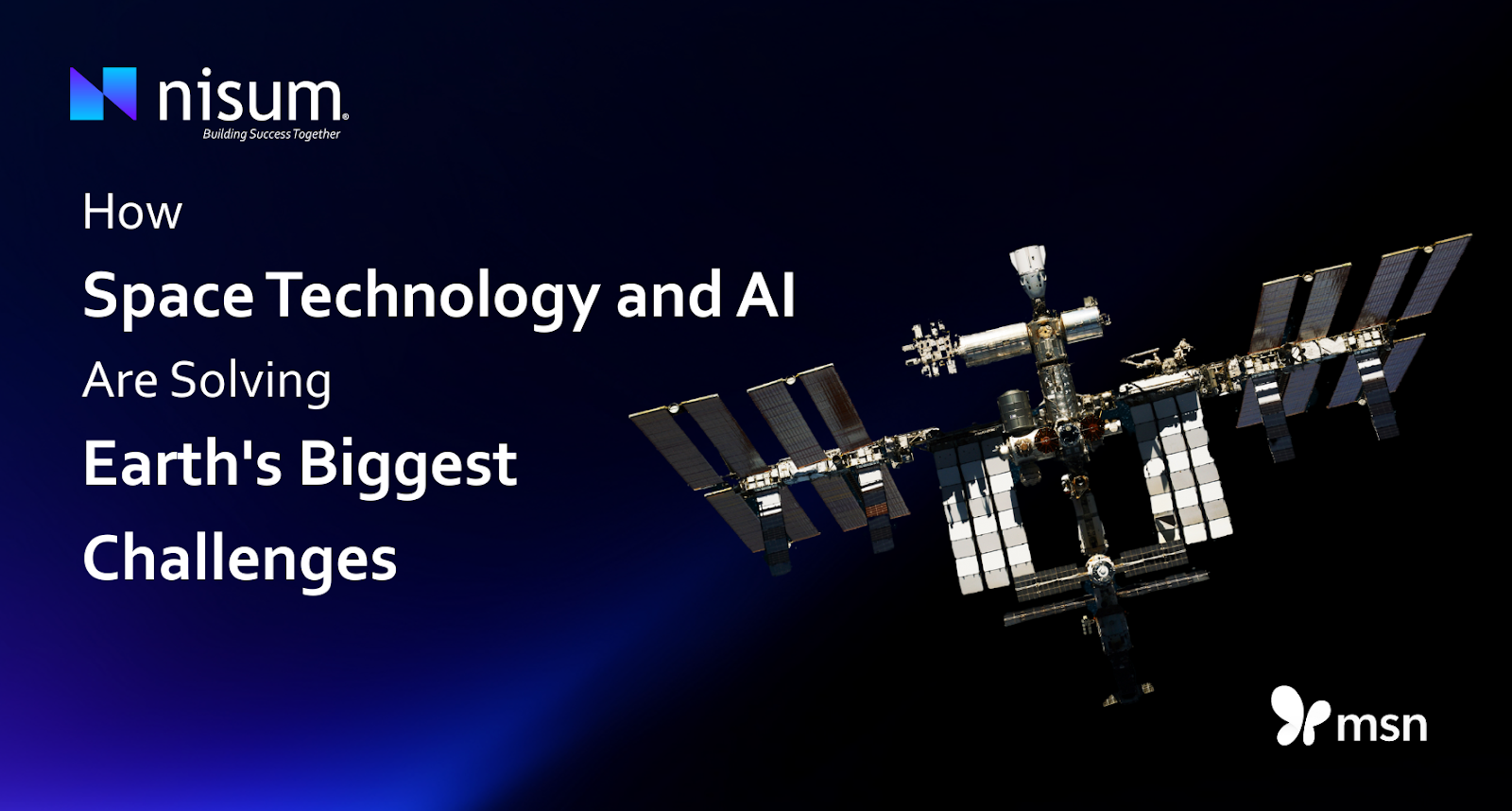Many Fortune 500 companies have invested heavily in AI pilots yet too often these experiments never reach scale. Why? According to Martin Lewit, SVP of Corporate Development at Nisum, the problem isn’t the algorithms. It’s everything around them.
In his recent appearance on the AI with Arun show (watch here), Martin explained what separates organizations that get stuck in pilot mode from those that unlock true enterprise AI solutions.
At Nisum, we believe his insights offer a leadership playbook for scaling AI responsibly.
The AI Scaling Framework: From Pilot to Enterprise
“Scaling AI is a leadership exercise, not a tech rollout.” — Martin Lewit
Here are the five essentials that turn pilots into impact:
1. Outcomes First
AI adoption must be guided by AI strategy and clear business outcomes: efficiency gains, new revenue models, or customer experiences.
2. Data Readiness
Scaling requires unifying data silos, governing quality, and enabling access. In pilots, curated data hides the challenge. At enterprise scale, data quality and accessibility make or break success.
3. Governance & Trust
Trust comes from AI advisory and governance: explainability, bias monitoring, and accountability.
4. Change Management
Scaling AI is a business transformation, not a technical upgrade. Leaders must align people, processes, and workflows with applied AI practices.
5. Experimentation at Speed
With agentic AI solutions and autonomous systems, leaders can deploy bounded AI agents in weeks. This agility accelerates learning but requires strong governance. In some cases, leaders are turning to AI Agentic Solutions as part of their enterprise toolkit.
From Automation to Autonomy
“The real shift is from automation to autonomy from efficiency to entirely new capabilities.” — Martin Lewit
Traditional intelligent automation delivers cost savings, but Agentic AI unlocks new ways of working:
-
Autonomous supply chains that self-adjust
-
Self-healing systems that resolve incidents
-
Predictive inventory that executes automatically
For leaders, the question becomes not “How do we optimize existing processes?” but “What new capabilities can AI-driven solutions unlock?”
AI, the Workforce, and Inclusion
The risk isn’t being replaced by AI. It’s being replaced by someone who knows how to use AI. That makes lifelong learning, reskilling, and human-centered roles essential.
AI can also be a great equalizer. With applied AI in education, health, and the economy, enterprises and societies can broaden inclusion if they pair technology with infrastructure and policy.
What This Means for Enterprise Leaders
Scaling AI is not just a technical challenge. It’s a leadership mandate.
To move beyond pilots:
-
Anchor in business outcomes with a clear AI strategy
-
Invest early in data readiness and governing quality
-
Operationalize trust through AI advisory and governance
-
Treat scaling as transformation, not IT deployment
-
Leverage agentic AI solutions for safe and fast experimentation
At Nisum, we partner with enterprises to design and implement AI solutions tailored to their needs, combining AI consulting, applied AI practices, and AI-driven solutions to create measurable, sustainable impact.
Learn more at www.nisum.com


